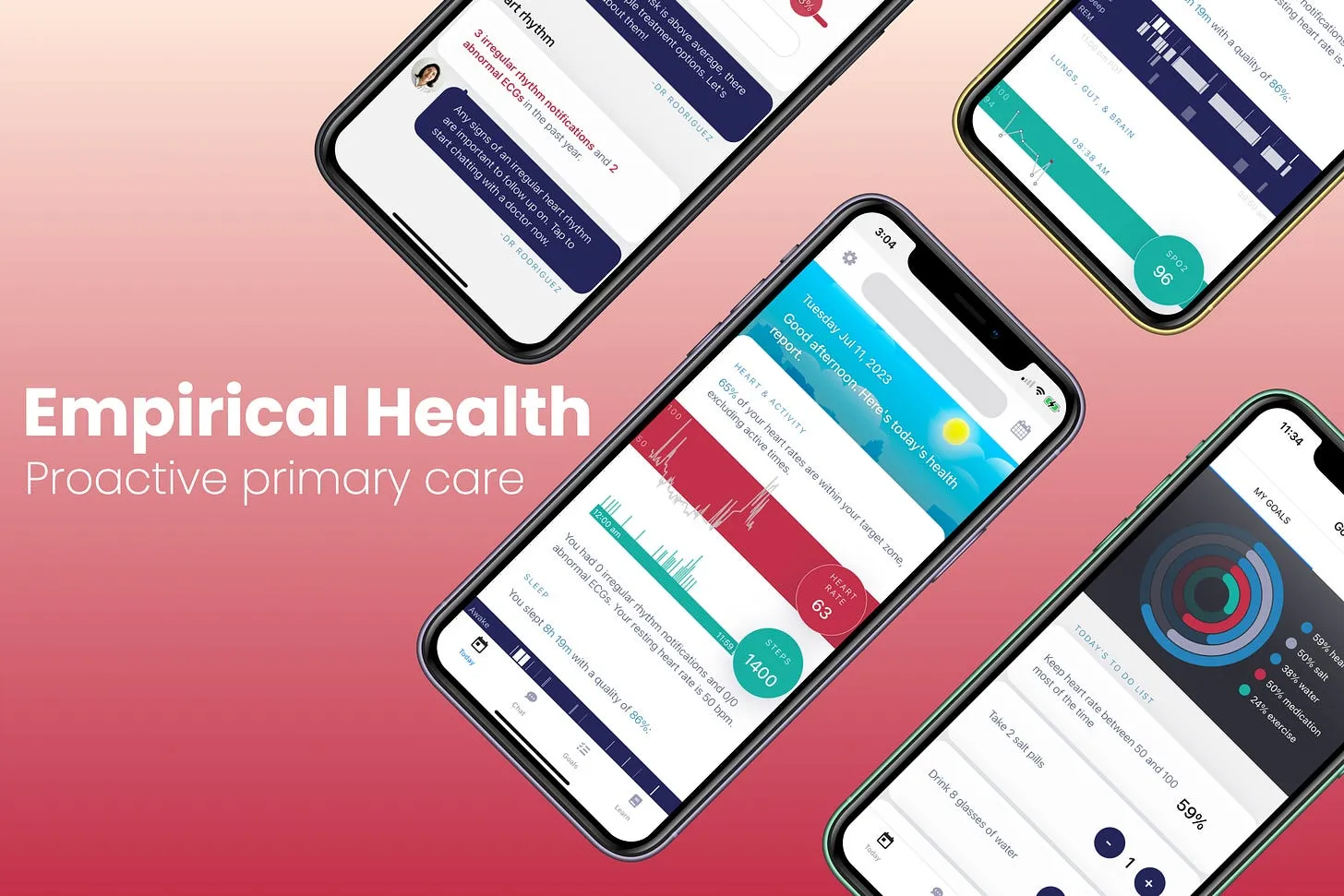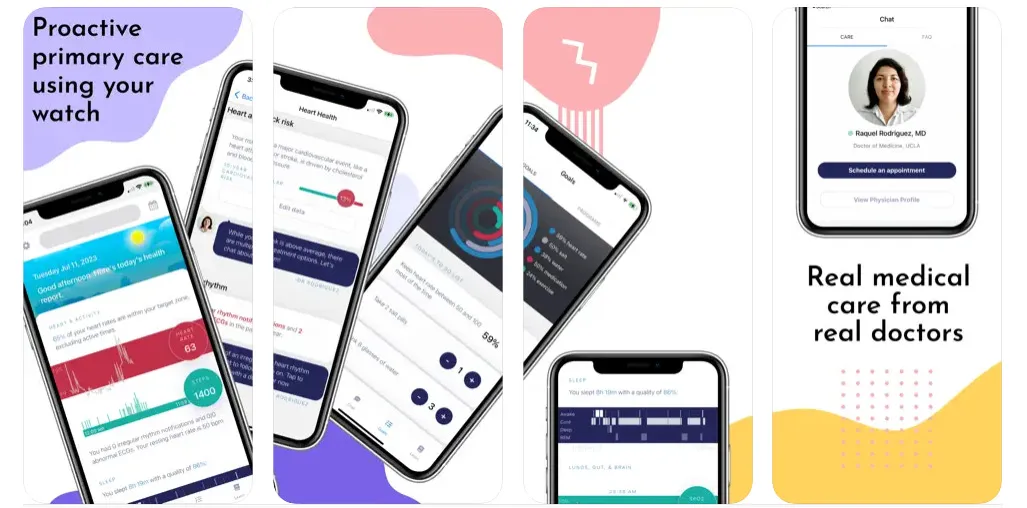Try it! DownloadEmpirical Health on the App Store today.

Great primary care is the bedrock of our healthcare system, but often neglected.
The best primary care models reduce hospitalizations by 51% and the overall cost of care by 15-30%—but rely on a labor-intensive model which requires a 500:1 patient doctor ratio.
We’re in the middle of a primary care shortage, with only 246,000 active primary care physicians serving a population of 332 million.
What if we could use modern technologies like AI, health sensors, and structured, asynchronous programs to scale great primary care to everyone? And modern business models like global capitation, shared savings, and prospective payments to let us invest more in preventing, rather than reacting to, the complications of chronic illness?
That’s what we’re trying to build with Empirical Health.
Primary Care of the Future
Empirical Health is launching today on the App Store as our first step at building the primary care of the future. We’ve built:
-
A fully licensed, registered, and insured medical practice which is live in California, Texas, Hawaii, and Florida. We can give real medical care — diagnosis, treatment, prescriptions, lab orders, imaging, specialist referrals, and so on.
-
A consumer-facing app, Empirical Health , which integrates with HealthKit and Apple Watch to enable virtual medical care. (Even if you’re outside of the four states where we practice medicine, the app is available to you for health insights and you can sign up for the waitlist to be notified when we launch in your state.)
-
Custom, AI-enabled EMR software to help our in-house physicians sift through all that health data and prescribe structured programs for Long Covid / POTS, heart health, and sleep apnea.

Why now?
-
Value-based care. Value-based care is finally here at scale, with Oak Street health being the poster child for global capitation in Medicare and Medicare Advantage. CMS continues to innovate with the making care primary models, and private insurers are driving shared savings models in Medicaid and Commercial segments.
-
Generative AI is driving the cost of intelligence to zero. Recent studies have shown AI can deliver human-level accuracy and empathy. While we don’t think AI should be autonomous, we think AI-based drafting with a physician in the loop allows primary care to scale.
-
Consumer health sensors are ubiquitous. Over the last 10 years, consumer health sensors have become whole-health monitors. It’s not just the FDA-cleared ECG (electrocardiogram)— it’s also blood oxygen saturation (think COVID-19, Asthma, and COPD), HRV (autonomic and gut conditions), temperature (infectious diseases and cycle), and motion (neurological or musculoskeletal). And they’re being purchased at scale — about half a billion sold per year.
-
Structured, asynchronous virtual care.Chronic illnesses are like projects to be managed. They’re most effective when the work can be done in small, asynchronous, bite-sized chunks, rather than just a 20-minute appointment every 6-12 months. Virtual care is now widely reimbursed and accepted by regulators, which means we can shift the atomic unit of care from the 20-minute appointment to a longitudinal, asynchronous relationship.
We need your help!
-
Download Empirical Health on the App Store - try out the app and let us know what you think.
-
Empirical Health on Product Hunt - feel free to leave a comment or question!
-
Launch Y Combinator - we’re in this summer’s YC batch! Feel free to spread the word.
-
BGR: Empirical Health app brings proactive primary healthcare to the Apple Watch
Get your free 30-day heart health guide
Evidence-based steps to optimize your heart health.
